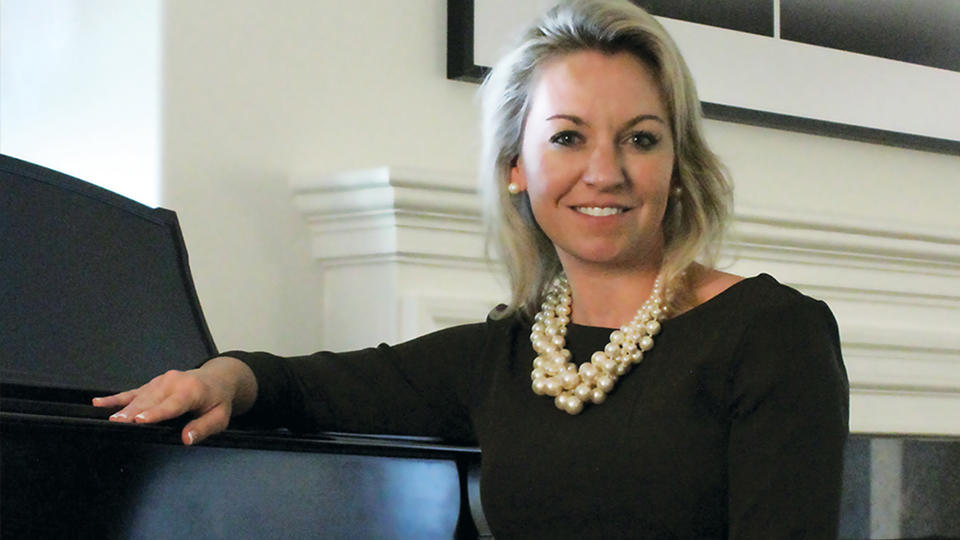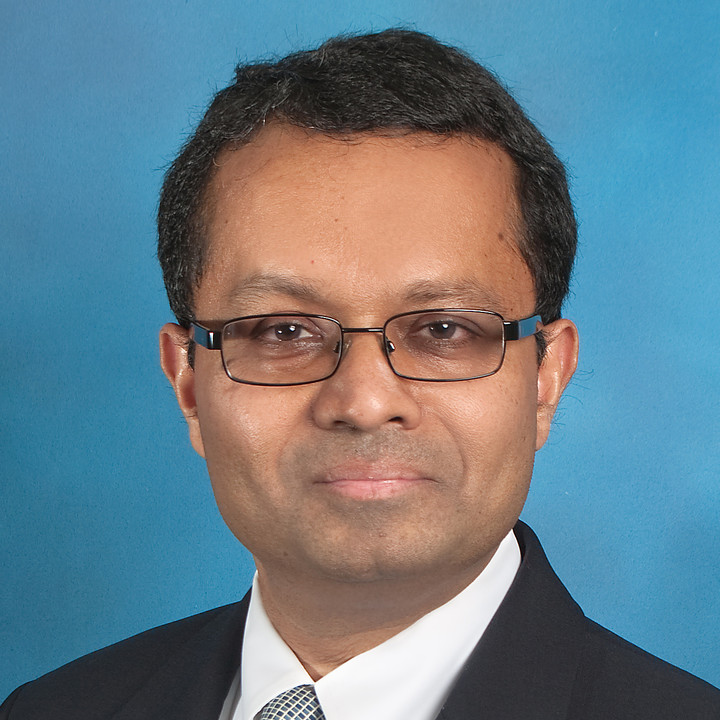Meet Full-Time MBA, Aquib Yacoob
Aquib Yacoob is an entrepreneur, community organizer, strategist and a Rice MBA.
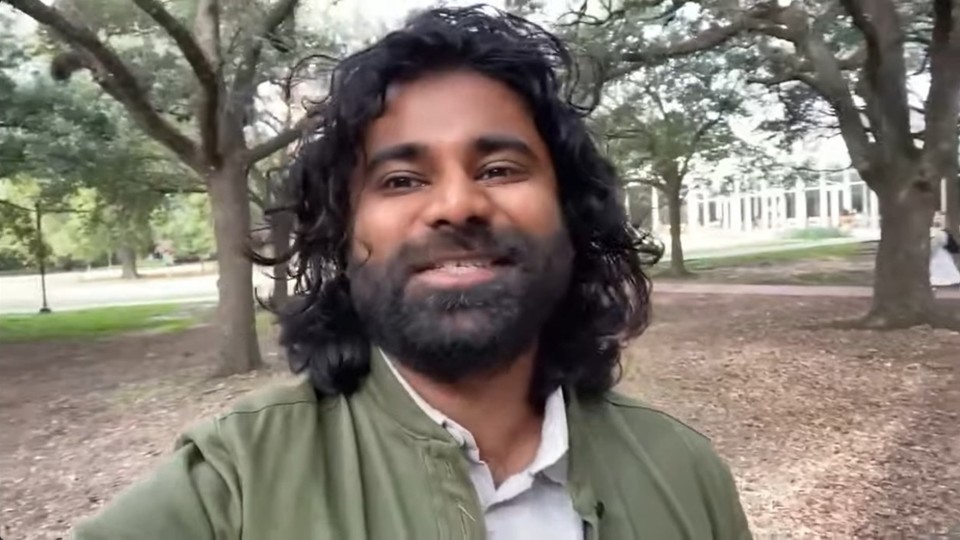
Aquib Yacoob is an entrepreneur, community organizer, strategist and a Rice MBA. He shares why the diversity in Houston is one of his favorite things about the city and how the sense of community at Rice Business inspired him to move from New York City for his MBA.
Keep Exploring
The Impact of Global Field Experiences
Students and faculty reflect on the lessons learned, the challenges overcome, and the lifelong connections made.
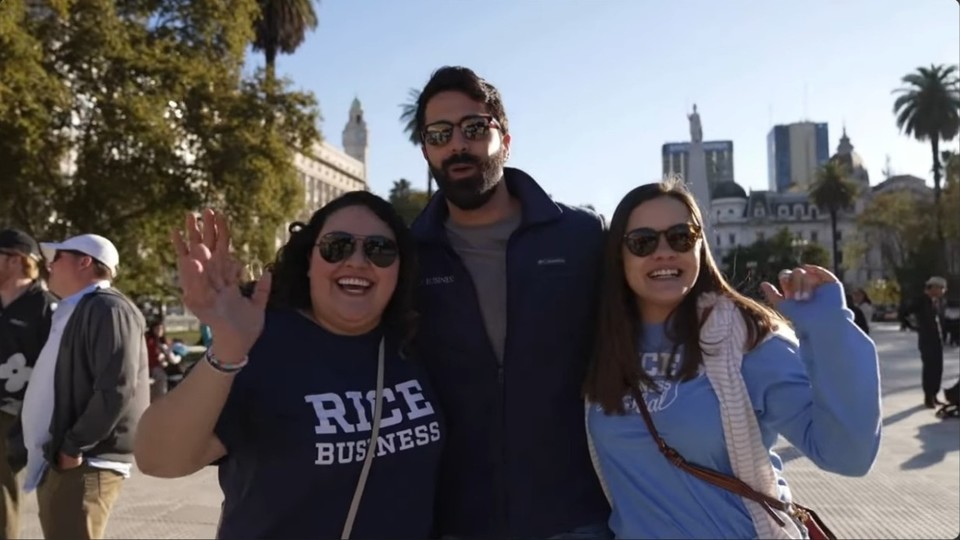
Journey Across the Globe: Rice Business Global Field Experiences
From the bustling streets of major cities to the boardrooms of international entrepreneurs, our MBA students gained invaluable insights into global business practices, cultural dynamics, and real-world problem-solving. This immersive experience took our cohorts to diverse destinations, where they collaborated with global partners, engaged in hands-on consulting projects, and navigated complex business environments.
Keep Exploring
Meet New Challenges, Achieve Your Goals
Vanilla Alumanah, Hybrid MBA
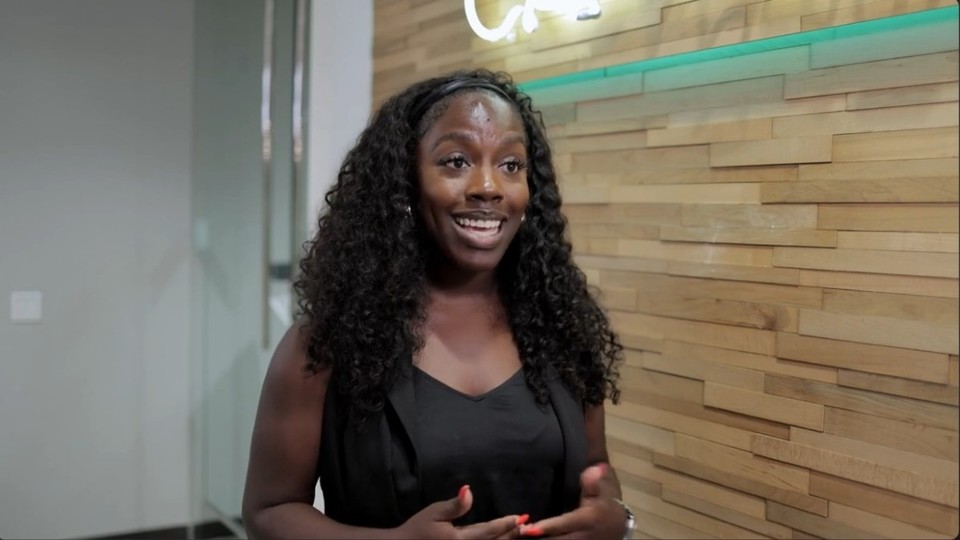
Follow along as MBA student Vanilla Alumanah discusses the flexibility and hands-on learning opportunities of the Hybrid program at Rice Business. She shares how the community and resources at Rice supported her personal and professional goals, allowing her to pursue her career while balancing motherhood. With peers and professors encouraging you every step of the way, Rice Business will help you get where you want to be.
Keep Exploring
Learning to Lead Through Business
Kyle Neff, Hybrid MBA
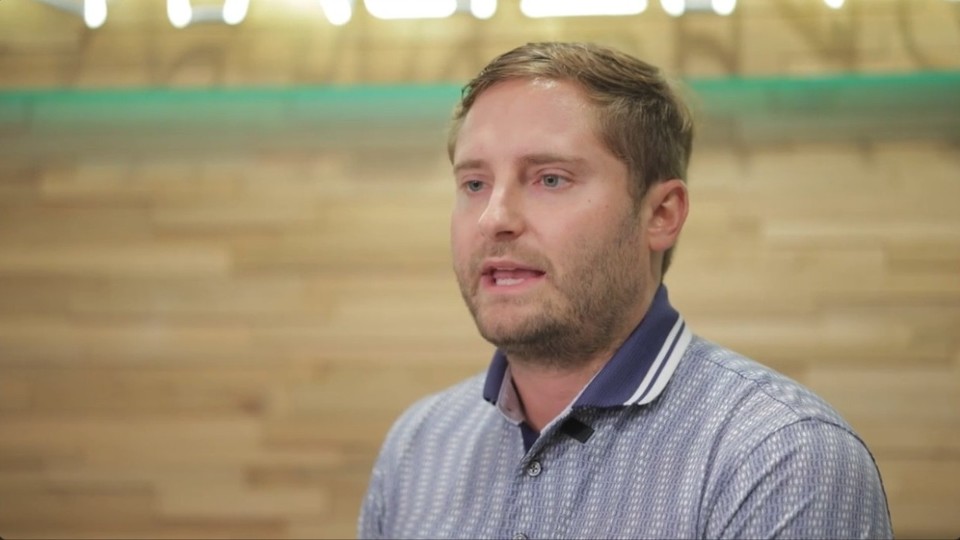
Oklahoma City native Kyle Neff shares why the Hybrid MBA at Rice Business was the right program for him. With a background in engineering, he sought a program that would provide him fundamental skills, like finance and economics, as well as help him develop his unique leadership style. From Rice Business’ expert faculty to Houston’s dynamic backdrop, Kyle discusses how the Hybrid MBA has helped him sharpen his business expertise and grow as a leader in his current organization.
Keep Exploring
Personalize Your Experience
Emily Brown, Professional MBA
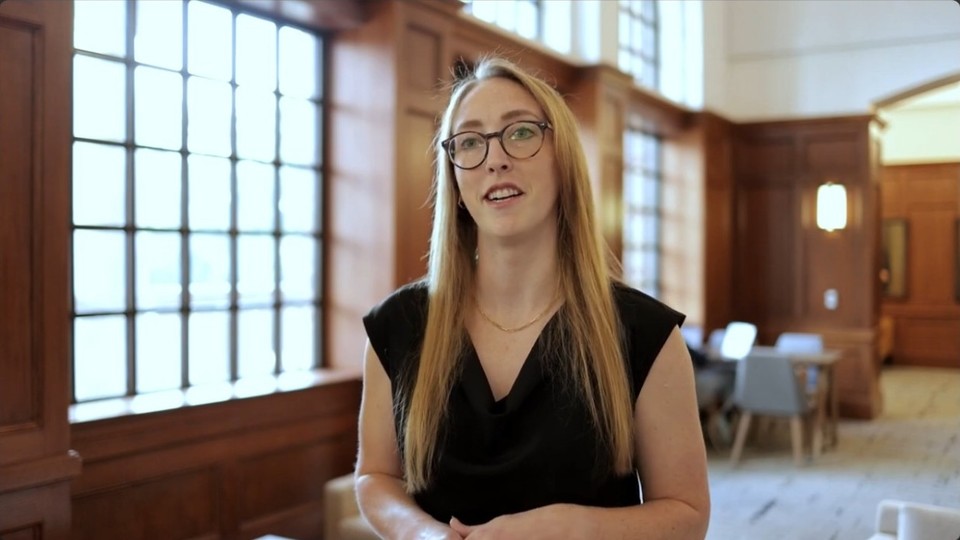
Emily Brown, Professional MBA student, connects her passion for learning with Rice Business’ supportive and dynamic community. With a background in engineering, she shares how the program complemented her technical skills and helped build a strong foundation for success in business. Emily knows firsthand about the power of relationships at Rice Business — from classmates who lift each other up through challenges to a culture that’s both hardworking and fun. She highlights invaluable resources, like one-on-one coaching from the Doerr Institute, which elevated her confidence and leadership skills.
Keep Exploring
Gain a Lifelong Network
Mark Yang, Professional MBA
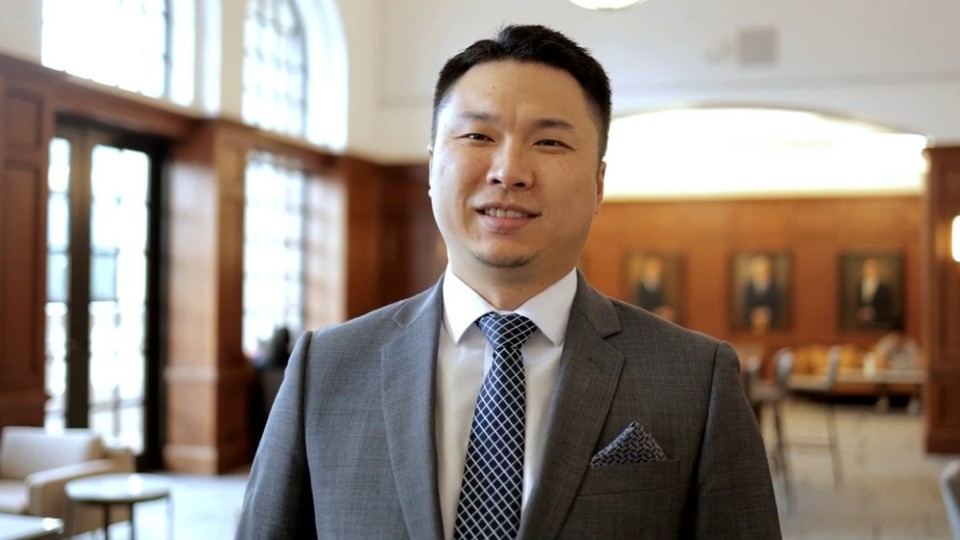
Mark Yang shares his experience of choosing Rice Business for his Professional MBA program, emphasizing the beauty of Rice’s campus and the close-knit community. Mark highlights the collaborative culture at Rice Business, noting how the relationships he’s formed have become lifelong friendships. For prospective students, he shares the commitment required to get an MBA, including time and finances, but emphasizes the transformation he’s experienced in terms of mindset, approach and worldview.
Keep Exploring
Community and Career Growth
Colton Larsen, Professional MBA
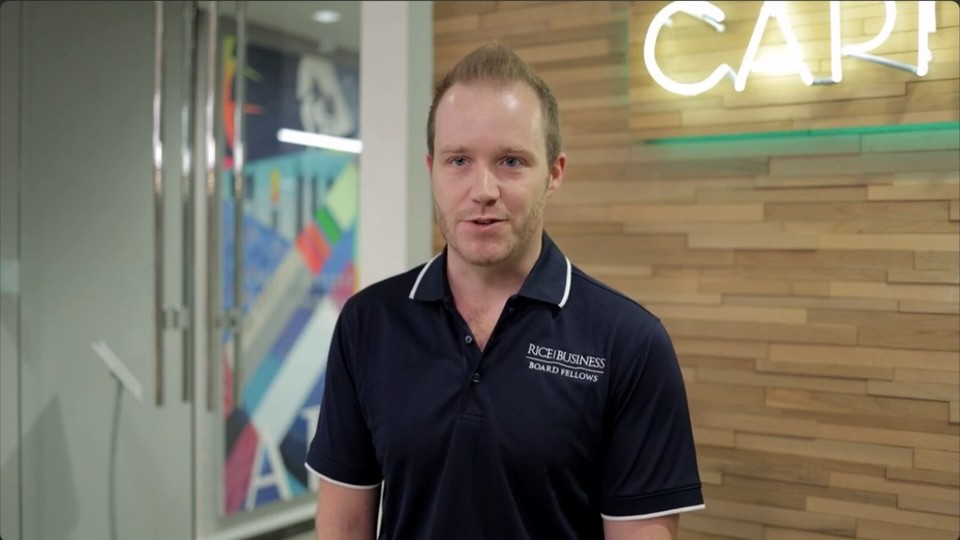
Hear from Colton Larsen, a Professional MBA student, about why he chose to study at Rice Business for its reputation and the resources to help him explore new opportunities and navigate the recruiting process. He shares how Rice fosters a culture of belonging and support, where he has felt welcomed and championed as a gay MBA student from day one. He also highlights the impact of Rice’s professors and the opportunities that come with studying in Houston, one of the fastest-growing metro areas in the United States.
Keep Exploring
Transform Your Life With an MBA
Denise Buckley, Executive MBA
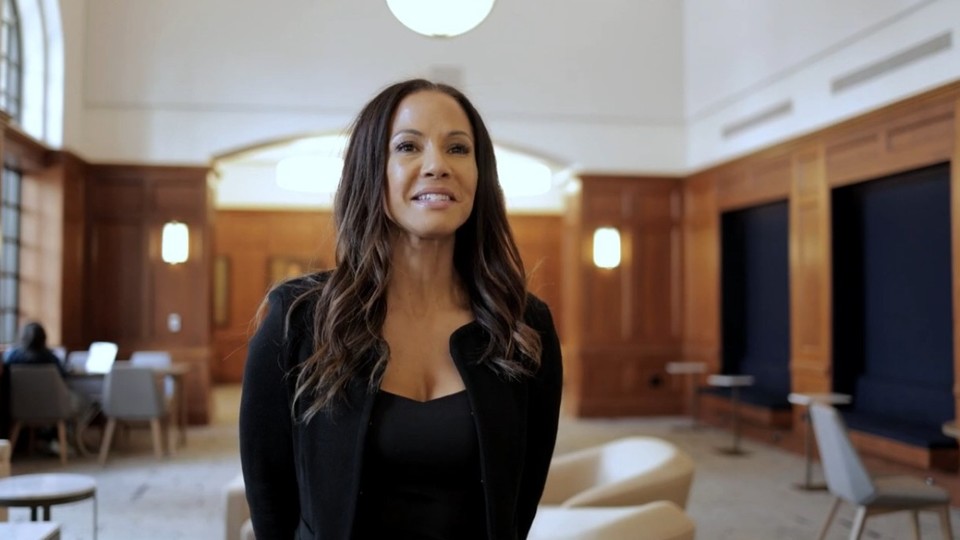
Hear from Executive MBA Denise Buckley on how her daughter’s MBA experience at Rice inspired her to pursue her own business degree. She reflects on the transformation she witnessed during her daughter’s journey, as well as her own appreciation for the supportive faculty, foundational curriculum and expansive network offered by Rice Business. Denise encourages prospective students to take the next step and apply — whether or not it seems like the “right time.”
Keep Exploring
Real Humans of energyRe: Diego Pedrazas ’24,
Meet Diego Pedrazas, a recent graduate of Rice Business and a rising leader in the renewable energy investment space. Originally from Bolivia, Diego brought five years of engineering experience at Shell into the MBA program, where he focused on finance to pivot into strategic and deal-focused roles.
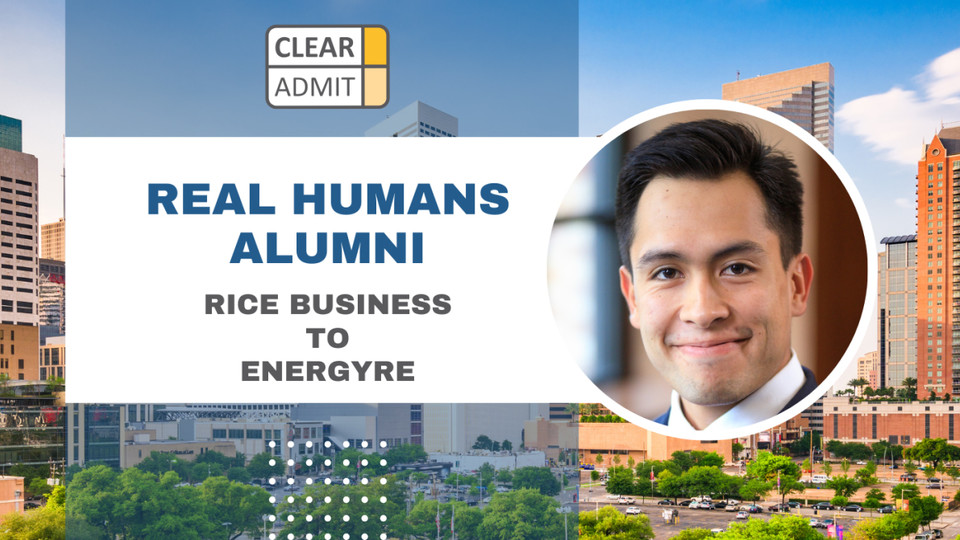
Google Search Trends Can Predict Retail Sales
Google search trends can forecast retail sales up to three quarters ahead — giving investors, analysts and policymakers an early glimpse into consumer demand.


Based on research by K. Ramesh (Rice Business) and Gary Lind Ph.D. ’19 (University of Pittsburgh)
Key findings:
- Search trends predict future retail revenue — up to three quarters ahead.
- Markets don’t fully price in search-based insights, especially before earnings announcements.
- Trading strategies using search data outperform traditional asset-pricing models by 2–3%.
- Analysts often underuse this data, resulting in predictable forecast errors.
- At the macro level, search trends closely track — and often lead — official retail sales and GDP.
Imagine being able to predict the future of retail sales — not with months-old economic reports, but with real-time digital breadcrumbs left behind by consumers. Thanks to new research from K. Ramesh (Rice Business) and Gary Lind (University of Pittsburgh), that future is already here.
Their study shows that Google search trends are powerful predictors of consumer demand, capable of forecasting U.S. retail sales up to three quarters in advance. The implications span industries and audiences — from Wall Street traders to Main Street retailers, and from data-driven CFOs to curious business students.
A Smarter, Faster Crystal Ball for Retail Demand
Personal consumption expenditures have historically ranged between roughly 60% and 70% of US gross domestic product (GDP), making them one of the most important indicators of economic health. Yet traditional forecasting relies heavily on backward-looking data and broad economic indicators. Ramesh and Lind’s work offers a leap forward: search data from Google Trends — publicly available and easy to use — can offer a faster, more precise signal of where sales are headed.
“If you want to understand consumer demand,” says Ramesh, the Herbert S. Autrey Professor of Accounting at Rice Business, “look at what people are searching for — not just what companies report after the fact. These digital footprints can tell us where revenue is going, often before the market catches up.”
This low-cost approach stands in stark contrast to expensive alternatives, such as satellite images of parking lots, in-store foot traffic from mobile data, or retail scanner feeds — tools often reserved for hedge funds and large institutional investors. Google Trends offers a scalable, accessible option for anyone seeking insight into consumer behavior.
Why This Matters for Investors and Analysts
The researchers analyzed search patterns for nearly 200 publicly traded U.S. retail companies between 2004 and 2019. They found that firms with rising search volumes tend to report higher revenues — often well before analysts or investors react.
In fact, investment strategies built around these trends earned 2–3% higher returns than traditional models would predict. And most of these gains were concentrated around earnings announcements — a sign that markets were slow to recognize what search data had already revealed.
The advantage is even more striking for companies that fly under Wall Street’s radar. For firms with limited analyst coverage, the predictive power of search data on stock performance was more than 80% stronger.
A New Tool for Analysts — If They’ll Use It
Despite the clear signal in the data, the study finds that analysts routinely fail to incorporate search-based insights into their forecasts. That gap translates into missed revenue predictions and market inefficiencies — which sophisticated investors can exploit.
“The search data are out there,” says Lind, a Rice Business Ph.D. ’19 graduate now on faculty at Pitt Business. “They’re public, powerful, and free. Analysts who ignore them are missing an opportunity.”
The impact of this research extends well beyond equity markets. By aggregating Google search data across the retail sector, the authors found strong alignment with U.S. Census retail sales figures and GDP trends. In other words, these digital signals reflect not just firm-level interest, but macroeconomic momentum.
“If you want to understand consumer demand,” says Ramesh, “look at what people are searching for — not just what companies report after the fact. These digital footprints can tell us where revenue is going, often before the market catches up.”
A Data Wake-Up Call
This makes search trends a potentially valuable early-warning system for policymakers, central banks, and anyone responsible for interpreting the economic landscape. During volatile or uncertain periods, such tools could offer precious foresight into shifting consumer behavior.
In a digital era where consumers research before they shop — whether online or in-store — it’s no surprise that their Google queries leave valuable clues. What’s surprising is how often businesses, investors, and even economists still overlook them, Ramesh says. “Search data is a goldmine. And it's just sitting there, waiting to be used.”
Written by Seb Murray
Lind and Ramesh (2025). “Using Internet Search Data to Predict Aggregate Retail Sales and Enhance Firm-Level Revenue Expectations,” Contemporary Accounting Research.
Never Miss A Story
